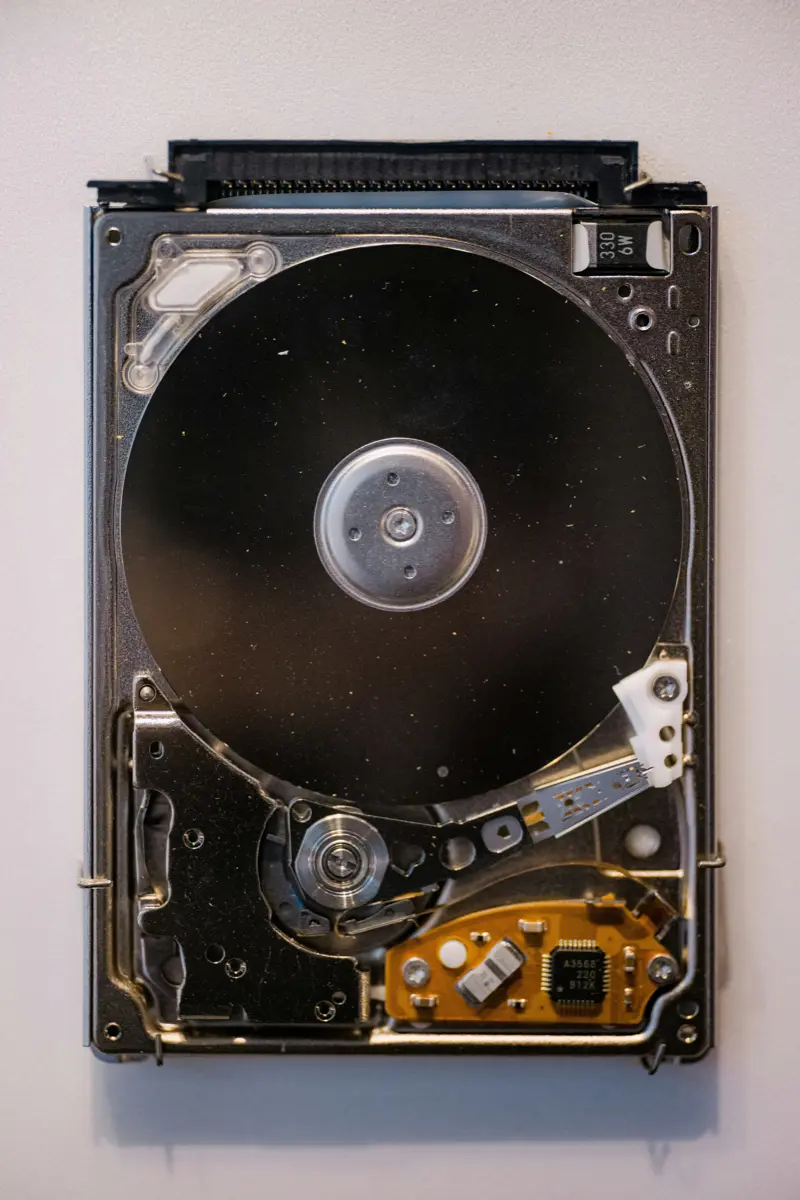💾 Managing Disk Space in Alpine Linux: Simple Guide
Managing disk space is like organizing your closet! 🗂️ Let’s learn how to keep your Alpine Linux system tidy and fast. It’s easier than you think! 😊
🤔 What is Disk Space Management?
Disk space management is like being a tidy housekeeper! 🏠
Think of it like:
- 🧹 Cleaning your room regularly
- 📦 Organizing your storage boxes
- 🗑️ Throwing away things you don’t need
On your computer:
- 💿 Disk space = Storage room on your hard drive
- 📁 Files = Things taking up space
- 🧹 Cleanup = Removing unnecessary files
- 📊 Monitoring = Checking how much space you have
🎯 What You Need
Before we start, you need:
- ✅ Alpine Linux computer
- ✅ Terminal access
- ✅ Basic typing skills
- ✅ Some files on your system
Let’s become disk space experts! 🎓
📋 Step 1: Check Your Space
See How Much Space You Have
Let’s look at your storage! 👀
What we’re doing: Checking how much disk space is used and available.
# Check disk space usage
df -h
# Check space in human-readable format
df -h /
# Check specific folder size
du -sh /home
# Check current folder size
du -sh .What this does: 📖 Shows disk space information in easy-to-read format.
Command explained:
df= Disk free (shows available space) 📊-h= Human readable (shows MB, GB instead of bytes) 👀du= Disk usage (shows how much space folders use) 📁-s= Summary (just totals, not every file) 📄
Example output:
Filesystem Size Used Avail Use% Mounted on
/dev/sda1 20G 5.2G 14G 28% /
tmpfs 512M 0 512M 0% /dev/shm
/home: 1.5G
.: 234MWhat this means:
- Total disk: 20GB, Used: 5.2GB, Free: 14GB ✅
- Home folder is using 1.5GB 📁
- Current folder is using 234MB 📄
- You have plenty of space! 😊
Cool! You can see your space usage! 👁️
Find Big Files and Folders
Let’s find space hogs! 🔍
What we’re doing: Finding the largest files and folders on your system.
# Find largest folders in current directory
du -h * | sort -hr | head -10
# Find largest files in home directory
find ~ -type f -exec du -h {} + | sort -hr | head -10
# Find folders bigger than 100MB
du -h . | grep -E '^[0-9]+(\.[0-9]+)?[MG]\s' | sort -hrCommands explained:
sort -hr= Sort by size, largest first 📊head -10= Show only top 10 results 🔟find ~ -type f= Find files in home directory 🏠grep -E= Filter results by size pattern 🔍
Example output:
850M ./Downloads
420M ./Documents
156M ./Pictures
89M ./Music
45M ./Videos
850M /home/user/Downloads/large-file.iso
234M /home/user/Documents/presentation.pdf
156M /home/user/Pictures/vacation-photosWhat this means: Downloads folder is your biggest space user! 📦
Great! You found your space hogs! 🎯
🛠️ Step 2: Clean Up Files
Remove Unnecessary Files
Let’s start cleaning! 🧹
What we’re doing: Removing files you don’t need anymore.
# Create some test files to clean up
echo "Test data" > testfile1.txt
echo "More test data" > testfile2.txt
echo "Old backup" > backup.old
# Check files before cleaning
ls -lh test* backup*
# Remove test files safely
rm testfile1.txt testfile2.txt
# Remove backup files (be careful!)
rm *.old
# Check they're gone
ls -lh test* backup* 2>/dev/null || echo "Files cleaned up! ✅"Commands explained:
rm filename= Remove (delete) files 🗑️*.old= All files ending with .old 📄2>/dev/null= Hide error messages 🤫
Safety tip: Always double-check before deleting! ⚠️
Perfect! You cleaned up unnecessary files! ✨
Clean Temporary Files
Let’s clean system temporary files! 🧽
What we’re doing: Removing temporary files that Alpine Linux creates.
# Clean APK cache (old downloaded packages)
sudo apk cache clean
# Check how much space that freed
echo "APK cache cleaned! 🧹"
# Clean temporary files in /tmp
sudo find /tmp -type f -atime +7 -delete 2>/dev/null || true
# Clean your user temporary files
rm -rf ~/.cache/* 2>/dev/null || true
rm -rf ~/.local/share/Trash/* 2>/dev/null || true
echo "Temporary files cleaned! ✅"What this does: 📖 Removes old cached files and temporary data.
Commands explained:
apk cache clean= Remove old downloaded packages 📦-atime +7= Files not accessed in 7 days 📅~/.cache= Your personal cache folder 📁~/.local/share/Trash= Your trash folder 🗑️
Excellent! Your system is cleaner! 🌟
📊 Quick Space Management Commands
| What to Check | Command | Example |
|---|---|---|
| 💿 Disk space | df -h | df -h / |
| 📁 Folder size | du -sh folder | du -sh ~/Downloads |
| 🔍 Big files | du -h * | sort -hr | du -h * | head -5 |
| 🧹 Clean APK cache | apk cache clean | sudo apk cache clean |
| 🗑️ Remove files | rm filename | rm old-file.txt |
🗂️ Step 3: Organize Your Files
Create Organized Folders
Let’s organize like a pro! 📚
What we’re doing: Creating a good folder structure to manage files better.
# Create organized structure
mkdir -p ~/Organized/{Documents,Pictures,Music,Videos,Downloads,Backups}
# Create subfolders for better organization
mkdir -p ~/Organized/Documents/{Work,Personal,Projects}
mkdir -p ~/Organized/Pictures/{2023,2024,2025}
mkdir -p ~/Organized/Downloads/{Software,Documents,Media}
# Check your new structure
tree ~/Organized 2>/dev/null || find ~/Organized -type d | sort
echo "Organized structure created! 🗂️"What this does: 📖 Creates a logical folder structure for different types of files.
Organization benefits:
- 📁 Easy to find files
- 🗂️ Logical structure
- 🧹 Easier to clean up
- 📊 Better space management
Amazing! You created an organized system! 🎨
Move Files to Right Places
Let’s put things where they belong! 📦
What we’re doing: Moving files into organized folders.
# Create some example files
echo "Work document" > work-doc.txt
echo "Personal note" > personal-note.txt
echo "Project plan" > project.txt
# Move files to right places
mv work-doc.txt ~/Organized/Documents/Work/
mv personal-note.txt ~/Organized/Documents/Personal/
mv project.txt ~/Organized/Documents/Projects/
# Check they moved correctly
echo "Files in Work folder:"
ls ~/Organized/Documents/Work/
echo "Files in Personal folder:"
ls ~/Organized/Documents/Personal/
echo "Files in Projects folder:"
ls ~/Organized/Documents/Projects/
echo "Files organized! ✅"Commands explained:
mv file destination= Move file to new location 📦- Files are now in logical places! 🗂️
Perfect! Your files are well organized! 🌟
🎮 Let’s Practice!
Time for a complete cleanup project! 🚀
What we’re doing: Doing a full system cleanup and organization.
# Step 1: Check current space usage
echo "Step 1: Checking space before cleanup... 📊"
df -h / | tail -1
# Step 2: Find big space users
echo ""
echo "Step 2: Finding space hogs... 🔍"
echo "Largest folders in home:"
du -sh ~/* 2>/dev/null | sort -hr | head -5
# Step 3: Clean system caches
echo ""
echo "Step 3: Cleaning system caches... 🧹"
sudo apk cache clean
echo "APK cache cleaned!"
# Step 4: Clean temporary files
echo ""
echo "Step 4: Cleaning temporary files... 🗑️"
rm -rf ~/.cache/* 2>/dev/null || true
echo "User cache cleaned!"
# Step 5: Create organized structure
echo ""
echo "Step 5: Creating organized structure... 🗂️"
mkdir -p ~/CleanHome/{Important,Archive,Temp}
echo "Organization folders created!"
# Step 6: Check space after cleanup
echo ""
echo "Step 6: Checking space after cleanup... 📊"
df -h / | tail -1
# Step 7: Show what we accomplished
echo ""
echo "🎉 Cleanup project completed!"
echo "✅ System caches cleaned"
echo "✅ Temporary files removed"
echo "✅ Organized structure created"
echo "✅ Space usage checked"What this does:
- Performs comprehensive system cleanup 🧹
- Creates organized file structure 🗂️
- Shows before and after space usage 📊
- Gives you a clean, organized system! ✨
Example output:
Step 1: Checking space before cleanup... 📊
/dev/sda1 20G 5.8G 13G 31% /
Step 2: Finding space hogs... 🔍
Largest folders in home:
1.2G /home/user/Downloads
856M /home/user/Documents
234M /home/user/Pictures
Step 3: Cleaning system caches... 🧹
APK cache cleaned!
Step 6: Checking space after cleanup... 📊
/dev/sda1 20G 5.4G 14G 28% /
🎉 Cleanup project completed!What this means: You freed up 400MB of space! 💫
Incredible! You did a complete system cleanup! 🌟
🔄 Step 4: Monitor Space Regularly
Set Up Space Monitoring
Let’s create a space check script! 📊
What we’re doing: Creating a simple script to check space regularly.
# Create space monitoring script
cat > ~/check-space.sh << 'EOF'
#!/bin/sh
echo "🔍 Disk Space Report - $(date)"
echo "=================================="
echo ""
echo "💿 Overall Disk Usage:"
df -h / | tail -1
echo ""
echo "📁 Home Directory Usage:"
du -sh ~ 2>/dev/null
echo ""
echo "🗂️ Largest Folders in Home:"
du -sh ~/* 2>/dev/null | sort -hr | head -5
echo ""
echo "⚠️ Warning Levels:"
USAGE=$(df / | tail -1 | awk '{print $5}' | sed 's/%//')
if [ $USAGE -gt 80 ]; then
echo "🚨 WARNING: Disk usage is ${USAGE}% - Consider cleanup!"
elif [ $USAGE -gt 60 ]; then
echo "⚠️ NOTICE: Disk usage is ${USAGE}% - Monitor closely"
else
echo "✅ OK: Disk usage is ${USAGE}% - Looking good!"
fi
echo ""
echo "🎯 Quick cleanup suggestions:"
echo "- Run: sudo apk cache clean"
echo "- Clean: ~/.cache and ~/.local/share/Trash"
echo "- Check: Large files in Downloads folder"
EOF
# Make script executable
chmod +x ~/check-space.sh
# Test the script
echo "Testing space monitoring script..."
~/check-space.shWhat this does: 📖 Creates a helpful script to monitor your disk space.
Script features:
- 📊 Shows current space usage
- 📁 Lists biggest folders
- ⚠️ Warns when space is low
- 🎯 Gives cleanup suggestions
Fantastic! You have a space monitoring system! 🤖
Schedule Regular Cleanup
Let’s automate cleanup! ⏰
What we’re doing: Setting up automatic cleanup tasks.
# Create cleanup script
cat > ~/auto-cleanup.sh << 'EOF'
#!/bin/sh
echo "🧹 Starting automatic cleanup..."
# Clean APK cache
echo "Cleaning APK cache..."
sudo apk cache clean 2>/dev/null
# Clean user cache
echo "Cleaning user cache..."
rm -rf ~/.cache/* 2>/dev/null || true
# Clean temporary files older than 7 days
echo "Cleaning old temporary files..."
find /tmp -type f -atime +7 -delete 2>/dev/null || true
# Clean trash
echo "Emptying trash..."
rm -rf ~/.local/share/Trash/* 2>/dev/null || true
echo "✅ Automatic cleanup completed!"
date
EOF
# Make cleanup script executable
chmod +x ~/auto-cleanup.sh
# Test the cleanup script
echo "Testing automatic cleanup script..."
~/auto-cleanup.shWhat this does: 📖 Creates an automatic cleanup script you can run regularly.
Perfect! You have automated cleanup! 🚀
🚨 Fix Common Problems
Problem 1: “No space left on device” ❌
What happened: Your disk is completely full. How to fix it: Emergency cleanup procedure.
# Emergency space cleanup
sudo apk cache clean
rm -rf ~/.cache/* 2>/dev/null || true
sudo find /tmp -type f -delete 2>/dev/null || true
# Check what freed up space
df -h /Problem 2: Can’t find what’s using space ❌
What happened: Hidden files are taking up space. How to fix it: Check hidden files and system directories.
# Check hidden files
du -sh ~/.* 2>/dev/null | sort -hr
# Check system logs
sudo du -sh /var/log/* 2>/dev/null | sort -hrProblem 3: Files keep coming back ❌
What happened: Programs are recreating temporary files. How to fix it: Identify which programs and configure them.
# Monitor what's creating files
ls -la ~/.cache/
ls -la /tmp/
# Check running processes
ps aux | head -10Don’t worry! Space problems are solvable! 💪
💡 Simple Tips
- Check space weekly 📅 - Run your monitoring script regularly
- Clean caches monthly 🧹 - Keep system caches small
- Organize immediately 📦 - Put new files in right places
- Delete unused files 🗑️ - Don’t keep files you don’t need
✅ Check Everything Works
Let’s test your space management skills! 🎯
# Create space management test
echo "Testing disk space management skills... 🧪"
# Test 1: Check space monitoring
echo "Test 1: Space monitoring"
df -h / > /dev/null && echo "✅ Can check disk space"
# Test 2: Check folder sizes
echo "Test 2: Folder size checking"
du -sh ~ > /dev/null && echo "✅ Can check folder sizes"
# Test 3: Create organized structure
echo "Test 3: Organization skills"
mkdir -p ~/test-organization/folder1/subfolder
echo "test" > ~/test-organization/folder1/test.txt
ls ~/test-organization/folder1/ > /dev/null && echo "✅ Can organize files"
# Test 4: Cleanup skills
echo "Test 4: Cleanup skills"
rm -rf ~/test-organization && echo "✅ Can clean up files"
# Test 5: Cache cleaning
echo "Test 5: Cache cleaning"
sudo apk cache clean > /dev/null && echo "✅ Can clean system caches"
echo ""
echo "🎉 All space management tests passed!"
echo "You're a disk space management expert! 🌟"Good output shows all tests passing:
Testing disk space management skills... 🧪
Test 1: Space monitoring
✅ Can check disk space
Test 2: Folder size checking
✅ Can check folder sizes
Test 3: Organization skills
✅ Can organize files
Test 4: Cleanup skills
✅ Can clean up files
Test 5: Cache cleaning
✅ Can clean system caches
🎉 All space management tests passed!
You're a disk space management expert! 🌟Perfect! You mastered disk space management! 🌟
🏆 What You Learned
Great job! Now you can:
- ✅ Check disk space with
df -h - ✅ Find big files with
du -sh - ✅ Clean APK cache with
apk cache clean - ✅ Remove unnecessary files safely
- ✅ Organize files in logical folders
- ✅ Monitor space usage regularly
- ✅ Set up automatic cleanup scripts
- ✅ Fix common space problems
🎯 What’s Next?
Now you can try:
- 📚 Learning advanced file compression
- 🛠️ Setting up backup systems
- 🤝 Managing multi-user systems
- 🌟 Exploring system optimization
Remember: Good space management keeps your system fast! ⚡
Keep your Alpine Linux system clean and organized! You’re protecting performance! 💫
Benefits of good disk space management:
- ⚡ Faster system performance
- 🗂️ Organized file system
- 💾 Efficient storage usage
- 🔍 Easy file location
You’re becoming a system administrator! Keep optimizing! 🌟




